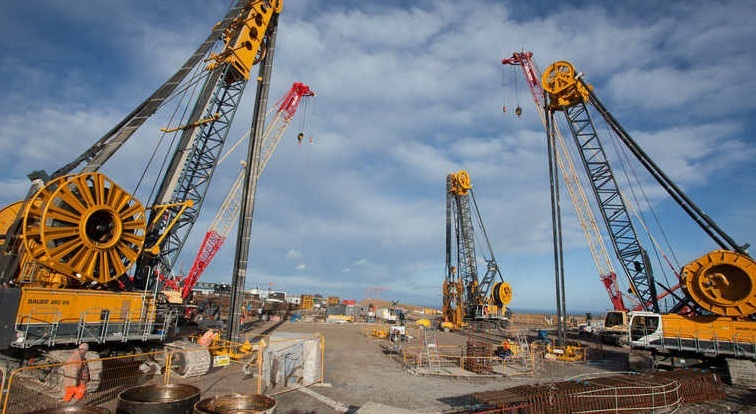London
The global mining industry is increasingly showing a commitment towards greater respect for human rights and the environment, but is accused of wanting to improve its reputation without seeking real progress.
Wildcat miners, including children, are risking their lives daily to unearth metals and minerals they sell to mining companies. In return, they earn a subsistence wage but not the working rights of a legal and salaried mining group employee.
“While industry initiatives on certain minerals and metals are helpful, companies are still responsible for undertaking comprehensive human rights due diligence across all minerals and metals in their supply chains,” Eniko Horvath, senior researcher at the Business and Human Rights Resource Centre (BHRRC), told AFP.
In June, dozens of illegal miners died when part of a copper mine collapsed in southeastern DR Congo. The mine was in the Kolwezi area operated by Kamoto Copper Company, a subsidiary of the Swiss giant Glencore.
Meanwhile at the start of the year, a dam collapse at a mine operated by Brazilian group Vale unleashed a tsunami of mud that killed more than 200 people while around 100 more went missing.
China, also the scene of fatal mining accidents, has additionally been in the spotlight for its dumping of toxic waste in Baotou, Inner Mongolia, as Beijing drives global production of rare earth elements used in key technologies such as smartphones.
Faced with rising criticism, the mining industry says it wants to adopt standards of good governance.
The London Metal Exchange, the global centre for trading in industrial metals, recently adopted new ethical standards to ensure better traceability of raw materials, especially those most at risk such as cobalt used heavily in high-end technology.
“As metals play an increasingly important role in society with increased focus on ethical supply chains, the LME’s role and responsibility is vital,” the exchange’s incoming and first female chair Gay Huey Evans said on her appointment.
Earlier this month, the World Gold Council (WGC) issued “Responsible Gold Mining Principles”, although the guidance is non-binding.
The industry body calls upon its members to “respect the human rights” of workers and communities affected by mining activities. “We will work to ensure that fragile ecosystems, critical habitats and endangered species are protected from damage and we will plan for responsible mine closure,” according to another directive. —AFP









